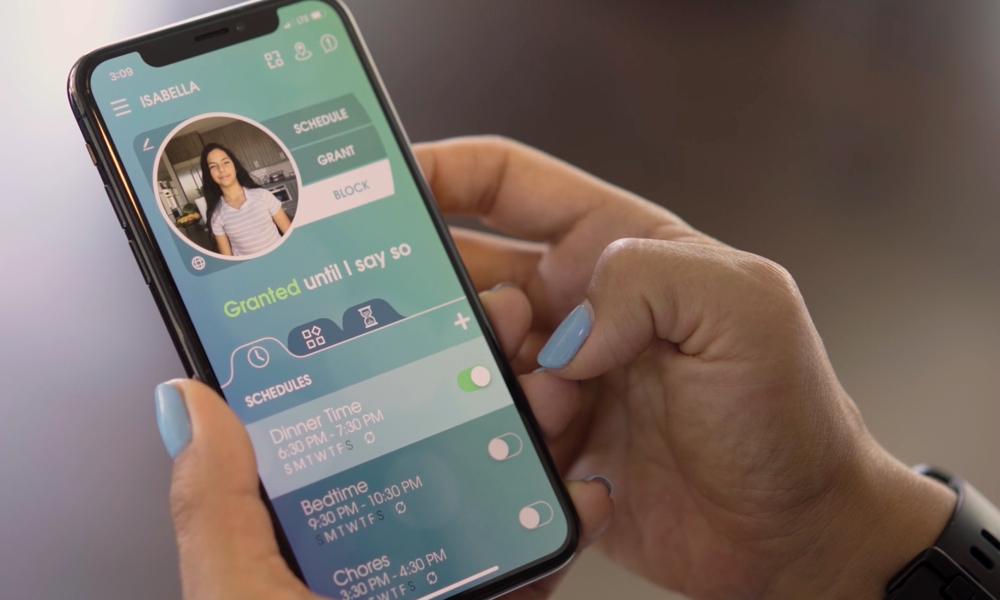Return of OurPact to the App Store Proves Apple’s Change of Heart on Parental Control Apps
 Credit: OurPact
Credit: OurPactToggle Dark Mode
Earlier this year it was revealed that Apple had been engaging in an unpopular fight against parental control apps on the App Store, suddenly cracking down on numerous apps that had been available for several years, and leaving developers feeling understandably disenfranchised as a result.
At the root of the problem from Apple’s point of view was that these apps were using the Mobile Device Management (MDM) features in iOS — a system designed to allow corporations and schools to control devices issued to employees and students — and extending it to controlling kids’ devices on behalf of parents. The key issue was that unlike businesses and schools, where the MDM “keys” are owned and controlled by the organization that also owns the devices, in the case of parental control apps it was the developers who were holding all of the keys on behalf of parents, potentially collecting needless personal data from children and putting their devices at risk should the developers’ systems ever be compromised. In fact, Apple even went so far as to issue a rare public statement explaining its reasons and defending its actions.
The Developers’ Proposal
Naturally, developers disagreed with Apple’s insistence that this was a problem, with the biggest of the bunch, OurPact, leading the charge in calling Apple’s statements “misleading” at best, insisting that MDM features didn’t truly let them do the sort of things that Apple was accusing them of. The whole controversy also cast Apple in a bad light, since the decision was made on the heels of the company releasing its own Screen Time feature in iOS 12, which of course offered some of the same features, although upon closer analysis it’s hard to see why Apple would care about letting third-party apps — from which it takes a 30 percent revenue cut — compete with its own iOS feature from which it makes no money at all.
Still, OurPact and other developers didn’t really dispute the point that MDM wasn’t the ideal way to implement parental controls — it was simply the only way available. Hence, shortly before Apple’s Worldwide Developers Conference (WWDC), a large group of developers banded together, led by none other than former Apple executive and iPod creator Tony Fadell, to insist that Apple provide a proper way for parental control apps to do what they need to do both securely and privately. In fact, the group even went so far as to provide specific details on what they were looking for, and an example of how to do it.
Apple’s Response
Surprisingly, instead of bothering to build a new parental control API, Apple actually backed down — at least mostly. While the company didn’t directly address the complaints of parental control app developers, it quietly updated its App Store Guidelines, basically acknowledging that parental control apps would again be able to use MDM — although only under more restrictive conditions than before.
In short, Apple said it would allow MDM to be used by developers, but that it would regulate the use of the feature, requiring that developers using the feature for parental controls make a case for doing so, while also requiring them to guarantee that the data gleaned through the technology will be minimized, and that what data is collected will be handled with the strictest privacy and security controls.
What Apple’s New Policy Means
Even with this reversal, however, it was unclear whether it would be enough to allow parental control apps back in the App Store in general, since of course the new policy still allows Apple to police those apps — developers basically have to specifically apply to Apple for the rights to use MDM technology. This naturally still allow Apple to act as a gatekeeper, and since none of the previously banned apps returned to the App Store right away, opinions from more cynical quarters suggested that the policy change might just be a PR move — basically Apple saying that they were willing to allow parental control apps to use MDM, but still not actually approving any apps.
Fortunately, however, we’ve now seen the first major evidence that Apple is sincere in its desire to allow third-party parental control apps back into the camp, with an announcement from OurPact — the largest and most vocal of the formerly ousted developers — that their app has in fact been reinstated to the iOS App Store.
As the press release suggests, part of the reason for the month-long delay between Apple’s policy reversal and the return of OurPact has been due to the need to have the app vetted under Apple’s new guidelines.
Despite initially citing data concerns as the reason for these removals, OurPact has been thoroughly reviewed by the Apple team and confirmed to pose no data security risk to children’s devices. The return of OurPact’s parent and child applications to the iOS App Store restores the software’s cross-platform availability.
OurPact Press Release
Despite all of the controversy — not to mention the revenue lost by OurPact and other developers while their apps were in limbo — there does appear to be a silver lining in Apple’s new approach. OurPact and others can now claim a badge of approval by Apple that their apps are secure and post no risk to childrens’ privacy. While this is something that many parents wouldn’t necessarily have even considered before, Apple’s actions, while probably not the most clearly thought-out, have at least had the side-effect of bringing these privacy issues out into the public consciousness.






